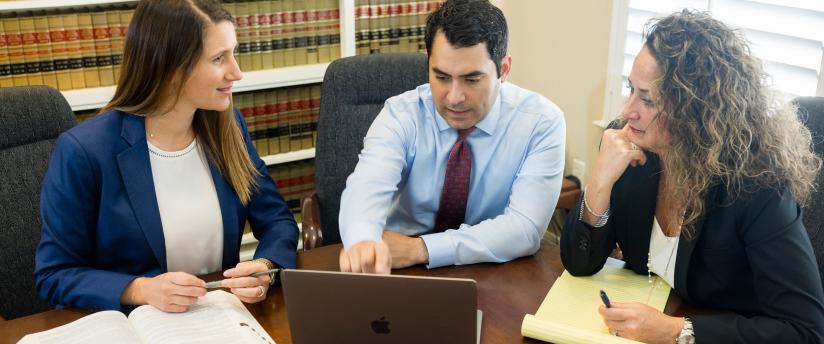Potential Penalties for Kidnapping Offenses in Texas: Understanding the Consequences

Kidnapping is a third-degree felony in Texas. It is punishable on conviction by 2 to 10 years in prison and a fine of up to $10,000.
Aggravated kidnapping is a first-degree felony. It carries a potential sentence of 5 to 99 years in prison and a fine of up to $10,000. If, at trial, a defendant proves they voluntarily released the kidnapping victim in a safe place, aggravated kidnapping charges will be reduced to a second-degree felony. This is punishable by 2 to 20 years in prison and a fine of up to $10,000.
Unlawful restraint is typically charged as a Class A misdemeanor. It is punishable by up to 1 year in prison or a fine of up to $4,000 or both. However, unlawful restraint may be charged as a:
- State jail felony if the person restrained was a child younger than 17 years old. This is punishable by 180 days to 2 years in a state jail.
- Third-degree felony if the defendant:
- Recklessly exposed the victim to a substantial risk of serious bodily injury.
- Restrained someone they knew to be a public servant while the public servant was lawfully discharging an official duty or in retaliation for having carried out official duties.
- Restrained anyone else while the defendant was in custody.
- Second-degree felony if the defendant restrained a person who they knew to be a law enforcement officer or a judge while the law enforcement officer or judge was lawfully discharging an official duty or in retaliation for the performance of an official duty.
A third-degree felony is punishable by 2 to 10 years in prison and a fine of up to $10,000.
A second-degree felony is punishable by 2 to 20 years in prison and a fine of up to $10,000.
Kidnapping vs. Unlawful Restraint: Key Differences Under Texas Law
In most cases, the key difference between kidnapping and unlawful restraint under Texas law involves abduction or taking a person from one place to another so they cannot be found and set free.
Slamming the door shut and saying, “You aren’t going anywhere” may be unlawful restraint, but it is not kidnapping.
Putting someone in the trunk of a car and/or blindfolding them, taking them to a location unknown to them would likely lead to kidnapping charges.
In other cases, unlawful restraint becomes an abduction and kidnapping because the defendant used or threatened to use deadly force.
Taking your child somewhere in violation of child custody orders could also lead to unlawful restraint charges. If you take them somewhere that could be considered a hiding place, you could face kidnapping charges.
If the child is younger than 14, taking them anywhere in violation of child custody orders and without permission may be charged as unlawful restraint – regardless of the child’s consent. If the child is aged 14 to 16, unlawful restraint charges may be filed if you take them out of Texas in violation of child custody orders and without permission.
It is not a crime for a parent or relative to take a child younger than 14 years old away from an unsafe environment, such as out of an unruly party, if the sole intent is to assume lawful control of the child.
Proving Abduction in Kidnapping Cases: Legal Considerations in Texas
If someone has claimed that you held them against their will, for the charge to rise to the level of kidnapping, the prosecution must be able to prove that you abducted the alleged victim. Abduction requires evidence of the defendant’s:
- Use or threats to use deadly force. Texas Penal Code defines deadly force as a force capable of causing death or serious bodily injury. It typically involves using or brandishing a weapon, such as a gun, knife, or club. If you did not possess a weapon during the alleged kidnapping and did not verbally threaten serious bodily injury, this standard would not be met.
- Holding the alleged victim in a place where he or she was not likely to be found. We would argue that anywhere you and the alleged victim had ever been together or that you had been known to frequent would be somewhere a reasonable person would likely look for and find the alleged victim. This excludes many places from potential hiding places.
Kidnapping also requires that the defendant intentionally or knowingly abducts another person. This means the defendant:
- Acted upon a conscious objective or desire to cause the alleged victim to be abducted, or
- Was aware that their conduct was reasonably certain to result in the alleged victim’s abduction – being hidden or held under threat of serious bodily injury.
To obtain a kidnapping conviction, it is up to the prosecution to prove that the mental state of intent or knowledge was present in your mind when you acted as alleged.
A charge is not a conviction. The burden is on the prosecution to prove that you are guilty beyond a shadow of a doubt to secure a conviction. An experienced kidnapping defense attorney with Minton, Bassett, Flores & Carsey, P.C., can help you fight the charges you face. As your attorneys, we would investigate to determine the strength of the prosecution’s case and identify its potential weaknesses. Depending on the circumstances, a strong challenge to the prosecution’s case may make it possible to have the charges against you reduced or dropped.
Because our firm’s attorneys have long-term professional relationships with Travis County prosecutors, we can reach out immediately if there are opportunities to negotiate downgrade charges. Sometimes prosecutors will downgrade or dismiss charges because the defendant has a clean record and expresses contrition, especially in cases involving family members who are also persuaded of the defendant’s remorse.
The outcome of your case is not predetermined. Contact an experienced and reputable Austin defense attorney to get the help you need.
Schedule A Free Case Review With Our Experienced Criminal Defense Lawyer
Minton, Bassett, Flores & Carsey, P.C., has successfully defended clients in the Austin, Texas, area against criminal charges such as kidnapping since 1963. When you hire an experienced and knowledgeable Austin kidnapping defense attorney from our firm, you will receive quality representation and individualized attention throughout the legal process.
It is important to engage an experienced criminal defense attorney as soon as possible after an arrest or indictment. The longer the police and prosecutors have to build their case against you without a defense attorney protecting your rights, the more challenging the fight for your rights becomes.
In Travis County and the greater Austin, TX, metro area, contact Minton, Bassett, Flores & Carsey, P.C., for experienced criminal defense representation against kidnapping charges. We are committed to defending our clients as aggressively as possible. Call us or contact us online now.







